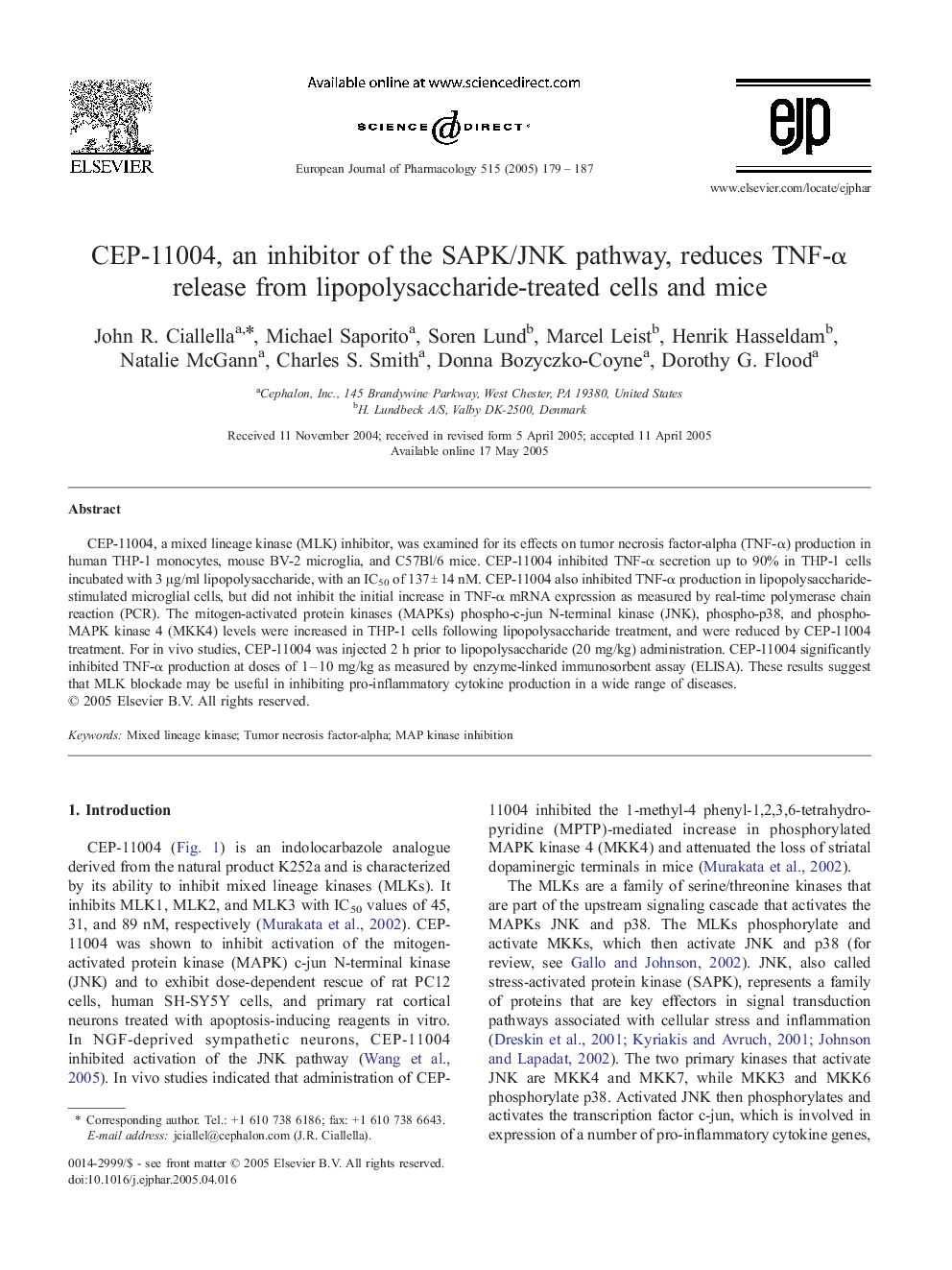| Article ID | Journal | Published Year | Pages | File Type |
|---|---|---|---|---|
| 9921319 | European Journal of Pharmacology | 2005 | 9 Pages |
Abstract
CEP-11004, a mixed lineage kinase (MLK) inhibitor, was examined for its effects on tumor necrosis factor-alpha (TNF-α) production in human THP-1 monocytes, mouse BV-2 microglia, and C57Bl/6 mice. CEP-11004 inhibited TNF-α secretion up to 90% in THP-1 cells incubated with 3 μg/ml lipopolysaccharide, with an IC50 of 137 ± 14 nM. CEP-11004 also inhibited TNF-α production in lipopolysaccharide-stimulated microglial cells, but did not inhibit the initial increase in TNF-α mRNA expression as measured by real-time polymerase chain reaction (PCR). The mitogen-activated protein kinases (MAPKs) phospho-c-jun N-terminal kinase (JNK), phospho-p38, and phospho-MAPK kinase 4 (MKK4) levels were increased in THP-1 cells following lipopolysaccharide treatment, and were reduced by CEP-11004 treatment. For in vivo studies, CEP-11004 was injected 2 h prior to lipopolysaccharide (20 mg/kg) administration. CEP-11004 significantly inhibited TNF-α production at doses of 1-10 mg/kg as measured by enzyme-linked immunosorbent assay (ELISA). These results suggest that MLK blockade may be useful in inhibiting pro-inflammatory cytokine production in a wide range of diseases.
Related Topics
Life Sciences
Neuroscience
Cellular and Molecular Neuroscience
Authors
John R. Ciallella, Michael Saporito, Soren Lund, Marcel Leist, Henrik Hasseldam, Natalie McGann, Charles S. Smith, Donna Bozyczko-Coyne, Dorothy G. Flood,
